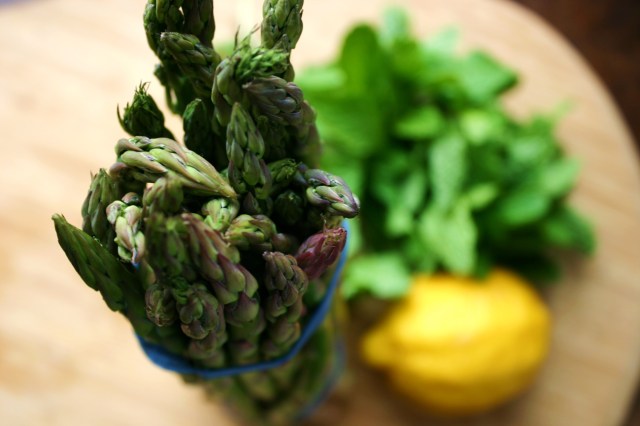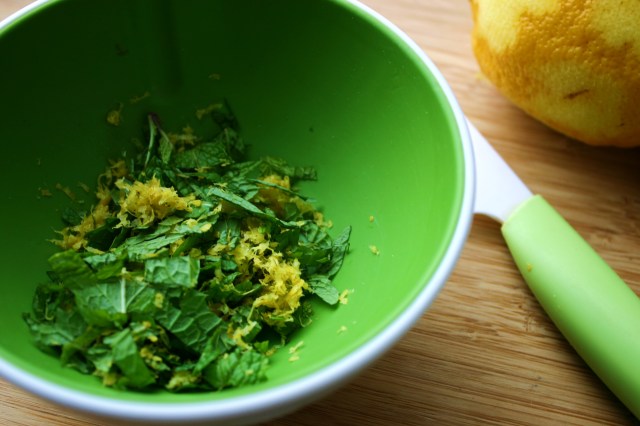Whenever I’m trying to remember something important—a due date, a birthday, the name of a friend’s new baby (oops!)—I’m always amazed by the random information my brain has quietly absorbed instead, without my knowledge. Most, to my chagrin, is completely useless: ’90s song lyrics, all the presidents in order, the name of the cat from Sabrina, the Teenage Witch. But also, without knowing how or when it happened, I unexpectedly learned to cook.
Between all the poetry, philosophy, and cultural theories, Friedrich Nietzsche’s brain wouldn’t seem to have much space for cooking skills either. Food in general often gave him more trouble than pleasure. Suffering from digestion problems, he hopped around Europe, from the French Riviera to the Italian coast, hoping the climate would restore his health. He avoided restaurants, where, he complained, “one is made accustomed to ‘overfeeding’; that is why I no longer like to eat in them.”
Yet, over the years, Nietzsche absorbed a love of cooking by learning the same way I did: through those around him. In Genoa, his landlady taught him to fry artichokes and whisk eggs for torta di carciofi, the local specialty. In Sorrento, in a villa surrounded by lemon trees, his housemaid showed him her secret to a perfect risotto, lovingly ladling out the stock as she stirred. Studying the techniques of his Italian housekeepers, Nietzsche was eager to become a teacher himself. He wrote to his mother: “I shall teach you later how to cook risotto—I know now.”
Nietzsche would later revise his opinion of restaurants, becoming a regular at several neighborhood trattorias, but he always reserved special praise for those dishes he learned himself; game recognize game. In a letter from Turin, he detailed his regular order: “minestra or risotto, a good portion of meat, vegetable and bread—all good … I eat here with the serenest disposition of soul and stomach.”
For most of us, cooking doesn’t happen intentionally; we don’t crack open a book to “Chapter 1: Let’s Talk About Knife Skills.” Instead, the path to the kitchen unwinds slowly, over a lifetime: “helping” sift the flour for a batch of cookie dough, learning to cut an onion without catching your fingers, trying to perfect the swirl on top of a meringue pie. It’s hard to remember each step we took. Instead it’s the guides we remember—be it a mother, grandmother, father or kindly landlady—for leading us along the way.
Nietzsche had a minor problem with consistency; his take on restaurants wasn’t the only thing that changed over time. Even as he was praising the risotto in Italy, he was writing a takedown in The Gay Science, published in 1882. “A diet consisting primarily of rice leads to the use of opium and narcotics,” he wrote, “just as a diet consisting primarily of potatoes leads to the use of liquor.” How does this make sense? I can only accept my boyfriend’s explanation: “Risotto isn’t rice. It’s just delicious.” Fitting, since he’s the one who taught me to make it.
This risotto recreates what Nietzsche might have learned to make in the Villa Rubinacci, after his regular walk through the lemon groves. I hope it doesn’t induce opium use—but a glass of wine alongside it wouldn’t be a bad thing.
(Adapted from Patricia Wells’ Trattoria)
5 cups vegetable broth
1 mint sprig
1 lemon, juiced and zested
4 tablespoons unsalted butter, divided
1 tablespoon olive oil
2 shallots, minced
Pinch of sea salt
1 1/2 cup Arborio rice
15 asparagus spears, cut into 1-inch pieces
1/2 cup freshly grated parmesan cheese, plus more for serving
1. In large saucepan, bring broth to a low simmer. Stem the mint. Combine mint with lemon zest and finely chop together. Set aside.
2. In large heavy-bottomed pan over medium heat, melt 2 tablespoons butter with the oil. Add shallots and salt, then cook until shallots are soft and translucent, about 3 minutes, stirring frequently. Add rice and stir to coat all grains with the butter and oil.
3. When rice becomes shiny, turn heat to medium-low and start adding the simmering stock a ladle at a time. Stir often, adding more stock when there is only a thin veil covering the rice. Add asparagus with the last ladle of stock. Remove pan from heat.
4. Stir in remaining 2 tablespoons butter, the herb mixture, 2 tablespoons lemon juice and 1/2 cup parmesan. Mix, cover and let stand 2 minutes. Add extra salt to taste. Transfer to warm shallow bowls and serve immediately with extra cheese.





This is a lovely risotto recipe. Love the use of lemon and mint.
Thanks so much – lemon always brightens my day!
I love Nietzsche and I adore risotto. What a great combination! I will definitely make this soon. Ever since I ate in Manhattan’s Risotteria, I have obsessively tried all sorts of combinations. Anything with lemon is among my favourites.
Wow, what a great piece and a great recipe! Knowing a bit about Nietzsche, I can say, however, that he was absolutely not prone to antisemitic rants. Indeed, he despised antisemitism (part of the reason he eventually became estranged from his sister and Richard Wagner). I can also clarify something about his love of risotto. The Gay Science was written earlier in his life; in his later years, when he was living in Turin, he wrote in Ecce Homo: “the best cuisine is that of Piedmont.” So it seems he acquired the taste for rice and risotto in later years. Anyway, I’m glad I stumbled upon this recipe!
Thanks so much, Art! I was being a little too glib – his opinions on antisemitism (like rice, and restaurants) really vascillated over time – so I’ve edited it here. It’s interesting about the rice; his letter about learning to make reisotto was written in 1877, before THE GAY SCIENCE came out, but then went back to it it seems. Apparently it’s much more polarizing than I thought 🙂
Good article. It’s a vegetarian dish and even though I will never try to make the dish, the theme of the article is interesting. The first sentence of the article reminds me of the following. Particularly when I associate it with Nietzche, I have always wanted to explore the various philosophies. My mind boggles with lots of thoughts, which sometimes lose clarity and focus. I want to publish a write-up on what I understood from the AynRand’s The Fountainhead. When the author could publish a 700-page book on a theme, after claiming that it’s one of my favorites, Can I not write a 7-page write-up? That is the reason no book gives me a closure except Harry Potter.(I discussed it with friends lots of times. So I am satisfied with it.) Explore other philosophies including Aadi Shankaraacharya’s Advaitham. Nietzches existentialism, Sartre, Albert Camus and Jiddu Krishnamurthi too. I heard of these people on arbitrary times, may be a single article or a mention of them in an article.
Interesting post. I read a lot about Nietschke when studying literary theory, only a year or so ago … at the time I felt confident I’d got my head around a little of what he wrote … now I seem to have forgotten most of it entirely. Risotto and asparagus dish sounds delicious, must try it.
I hope you do – let me know what you think!
Wow, sure Nietzsche is my Copilot ( http://amorphia-apparel.com/design/copilot/ ) but now he’s my chef too!
Ha! We should make our own shirt. I’d wear that.
Pingback: Braised Carrots and Asparagus Recipe | Nosh My Way
I love Spring risotto with lemon and asparagus (I add in fresh or frozen peas, too). One trick I learned recently is that one doesn’t need to stir the risotto as much as most recipes say: once adding the cup of stock, stir once to incorporate, then let the simmering absorb the rest. This technique turns out perfect risotto every time, and the simplicity allows me to make this dish on a regular basis. Risotto is such healing comfort food—I can see why Nietzsche would have liked it, as rice is soothing and easy to digest, especially when made warm and porridge-like. The correlation between rice and opium use though? Well well Nietzsche, that is some bad philosophy.
Pingback: Open Letter: Spring Resolution | BreadAndMutter.com
Beautiful photos! These are all of my favorite spring flavors—I’m sure I’d love this risotto.
Thank you for the wonderful photo and risotto recipe and I’m sure I will impress my wife.
Pingback: 7Belo #4 | Não lidos
Pingback: Week 5: Literary Dinner – 52 Weeks Studio
Pingback: Self-Overcoming, Self-Becoming, the Übermensch and Mr Olympia: Nietzsche in Bodybuilding – Fitnosophy